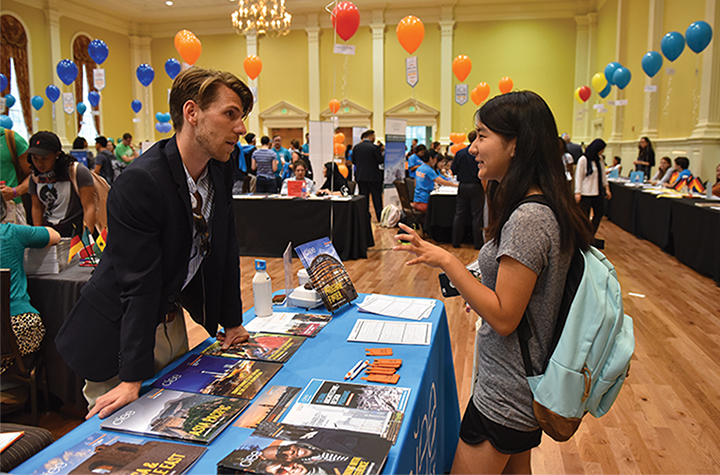Nick Sakurai wanted to take students out of their comfort zone, so the LGBT Equity Center leadership initiatives director organized the University of Maryland’s first LGBTQ+ Empowerment Study Abroad trip to Thailand this summer from June 3 to June 26.
“There are a few really interesting LGBT study-abroad programs out there that U.S. institutions are running, and almost all of them are in Western Europe,” ze said. “I’m not aware of there ever having been something like this in Asia or any other region of the world.”
While many students might be comfortable immersing themselves in Western Europe and North America, Thailand will be different, Sakurai said. Program participants will learn about local communities’ needs through conversations with LGBTQ and allied “change agents” in both Chiang Mai and the beaches of Pattaya. Topics will include fighting discrimination, discussing sexuality in Buddhism and advocating for transgender people to be able to access proper identity documents, according to the program website.
The idea for the Thailand program came about in October 2014 when the Education Abroad office released a request for proposals for an innovation grant. That made Sakurai begin thinking about proposing a new course, ze said, following hir visit to the country in January 2015 to do some preparation.
“Students will learn about how issues of LGBTQ leadership are articulated in other contexts, so they will get to see how these issues are addressed and how they can learn from experiences abroad for their own leadership skills,” said Moira Rogers, Education Abroad’s executive director. “It’s about empowering people.”
The experience will also help to clarify participants’ priorities, Rogers said, noting that it’s “always a great opportunity to look at your own assumptions, your own values, your own way of looking at things.”
Sakurai said another reason ze chose Thailand specifically is that Bangkok is a regional hub. The United Nations and the U.S Agency for International Development both have regional offices there, as well as networks for transgender people, sex workers and men’s sexual health.
David Chavannes, a music graduate student, said he applied to the program and is awaiting a response.
“I’m just curious about a culture that is different from any culture that I’ve spent time interacting with [about] just how they feel, how they conceive of gender and sexual orientation and what sort of tensions arise in navigating those,” he said.
The breadth of issues the program will be covering also drew him to it, Chavannes said.
“It can be easy to have your imagination limited by your surroundings,” Chavannes said. “To … interact with activists in other places, to see how they conceive of social justice and what that means to them in their context, I think, is an excellent opportunity to expand what we conceive of as possibilities.”



